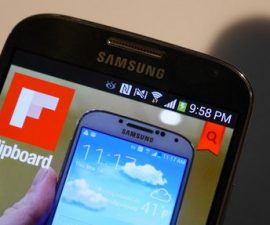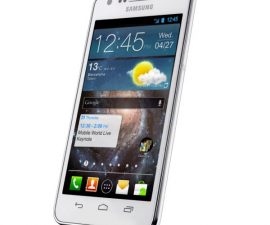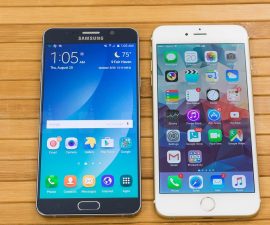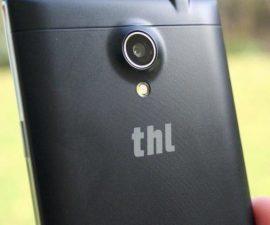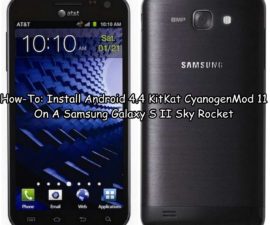The Samsung Galaxy S2 HD LTE vs The Samsung Galaxy Nexus
In fact, many believe that Samsung itself has created a “Nexus killer” with their own Galaxy S2 HD LTE.
Though many have said that the Samsung Galaxy Nexus is one of the best Android phones yet, not everyone is singing the same tune. The same company create one possible rival for the Nexus as “best Android phone” , this year’s best-selling Android phone, the Galaxy S2.
The Galaxy S2 HD LTE is an updated version of the Galaxy S2. The Galaxy S2 HD LTE has specs that don’t just match that of the Galaxy Nexus, but even surpass it in some areas.
Given that, which of these two devices should you hold out for? Which is worth getting off contract? Let’s compare it.
Dimensions
- The Galaxy S2 HD LTE measures 129.8 x 68.8 x 9.5 mm
- The Galaxy Nexus measures 135.5 x 67.9 x 8.9 mm
- For weight, the Galaxy S2 HD LTE is 130.5 grams
- On the hand, the Galaxy Nexus weighs 135 grams
- Moreover, the Galaxy Nexus is the device that is slightly heavier and bigger.
- However, at this stage of the game, this slight difference doesn’t really matter.
- Furthermore, the Galaxy Nexus also has a display that is slightly curved. This makes a great difference when you are using it in otherwise hard-to-view situations. For example in direct sunlight or other bright light situations.
- Both devices are easy to pocket and hold.
Display
- Both the displays of the Galaxy S2 HD LTE and the Galaxy Nexus are 4.65 inch Super AMOLED HD displays.
- The Galaxy S2 HD LTE and the Galaxy Nexus have 1280 x 720 p resolution for pixel densities of 316 pixels per inch.
- Both the displays are really stunning, the only quibble is with their use of the Pentile matrix which results is a bit of pixelation when viewing text.
- The Galaxy S2 HD LTE display is protected by Gorilla Glass
- For display protection, the Galaxy Nexus use fortified glass
- The lack of Gorilla Glass makes the Galaxy Nexus a bit more prone to scratches than that Galaxy S2 HD LTE.
Software
- Many people are demanding Android 4.0 in their devices, and they are right too.
- The Ice Cream Sandwich really represents a big upgrade in both design perspective and usability.
- The new animations used give it a better look and the entire feel is intuitive.
- You are allowed to drag icons one on top of another for folder creation, resize your widgets and multitask.
- There are some questions on how much of the stuff that Android enthusiasts have come to love might now work differently.
- All in all the amount of improvements are impressive and the UI is greatly improved.
- The Android 4.0 Ice Cream Sandwich is more than an upgrade, it is a new generation.
Processor
- The Galaxy s2 HD LTE uses a Snapdragon S3 MSM8660 dual-core Scorpion. The processor clock work at 1.5 GHz and an Adreno 220 GPU.
- The Galaxy Nexus has an OMAP 4 OMAP4460 dual-core ARMCortex-A9. The processor clock work 1.2 GHz with a Power VRSGX540@384MHz.
- Both devices are very powerful
- You can really see the software advantages of the Android 4.0 Ice Cream Sandwich of the Galaxy Nexusbut hardware wise. On the other hand, the Galaxy S2 HD LTE is slightly more powerful.
- You’ll probably get a 10-15 percent faster performance with the Galaxy S2 HD LTE. But the software advantages of the Galaxy Nexus will actually make it feel like the faster device.
- With the Galaxy S2 set to update to Android 4.0 by late Q1 2012, it could end up the faster device after all.
- Samsung probably didn’t give the Galaxy Nexus the software in the Galaxy S2 HD LTE because they didn’t expect to be able to meet the numbers.
- The Google engineers also likely favored the dual-channel memory controller of the OMAP.
- Samsung plan on putting their Exynos 4212 in the Galaxy S2 HD LTE but time limitation on chip availability made them opt for the QualComm Snapdragon S3.
- Both devices are very powerful and you won’t be disappointed either way.
Camera
- It’s likely that the software differences brought by the Android 4.0 Ice Cream Sandwich will end up resulting in better and faster picture taking and 1080 p video recording.
- The camera app now has a mode to take panorama photos as well as to use life effects and auto-upload to Google +
- The Galaxy Nexus has a lower megapixel count but can still take a great photo.
- If you want a fast and snappy shooter, go for the Nexus.
Battery
- The Galaxy S2 HD LTE has a 1,850 mAh battery
- The Galaxy Nexus has a 1,750 mAh battery
- In addition, the Galaxy S2 HD LTE has about 100 mAh more than the Galaxy Nexus.
- Super AMOLED displays are getting more common and they do a great job of producing rich and dynamic colors on the screen. As such, media consumption is a great experience, with pictures and images displayed nicely.
- However, users may find that a drawback to the AMOLED technology would be that, they need considerably more power to produce the color they do and this may result in a decline in the devices battery life.
- Another particular battery draining feature shared by the Galaxy S2 HD LTE and the Galaxy Nexus would be the fact that they are running on LTE networks.
- All in all, both devices are powerful and this power comes at a price. Both devices should have enough power to get you through a day with moderate or heavy use.
- An advantage shared by both these Samsung devices is the fact that their batteries are removable. So heavy users can take a spare with them and replace as needed.
Conclusion
It is undeniable that the Galaxy S2 HD LTE has a few advantages over the Galaxy Nexus in critical areas such as camera quality, battery life and even processing speed. The ability to add extra memory to the Galaxy S2 HD LTE is also a big draw. However, keep in mind that, the next generation of devices using a quad core will pass over the Galaxy S2 HD that is expected in 2012.
When we look at the Galaxy Nexus, though, there are definite software advantages. Its direct connection to Google also means that the Galaxy Nexus will be first in line for any software updates.
All in all, the choice between the two devices, as always, depends on your personal preferences. Objectively speaking, these are both very good smartphones and you can’t really go wrong with choosing one over the other.
What would you choose?
JR
[embedyt] https://www.youtube.com/watch?v=eTFmjCFCGQ4[/embedyt]


